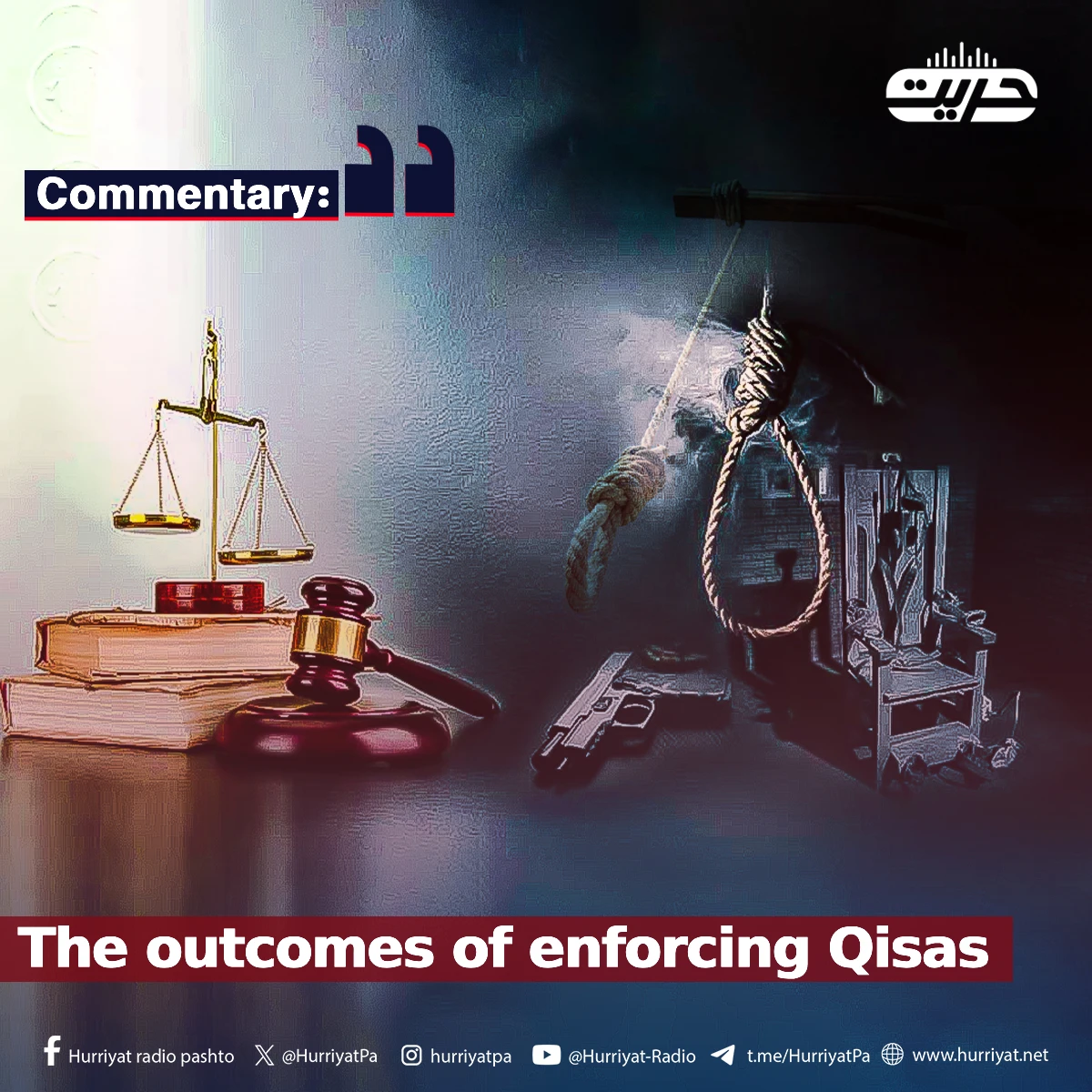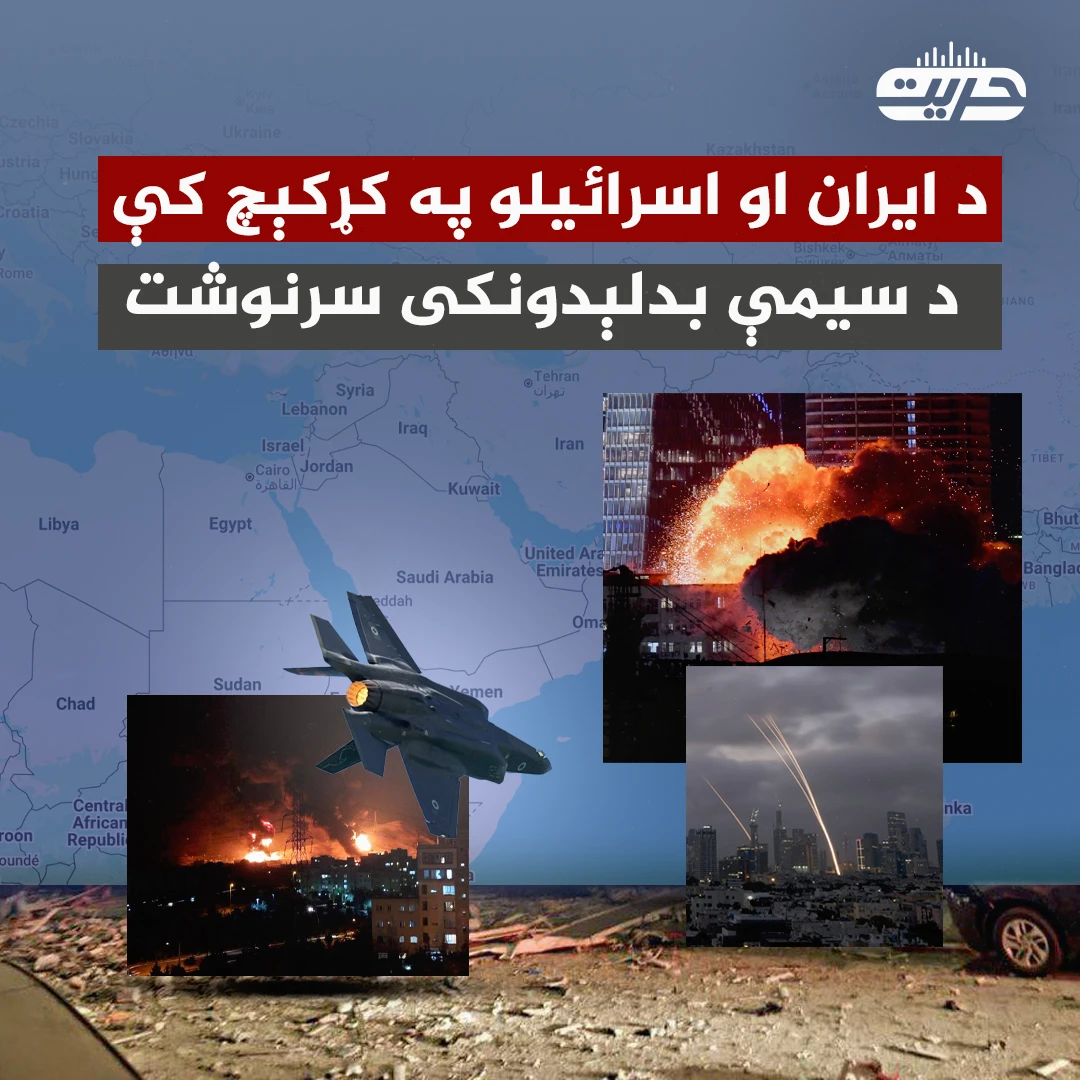The outcomes of enforcing Qisas
Thanks to the reinstatement of Islamic law in Afghanistan, the implementation of the Qisas order took place in the presence of a large gathering of individuals.
This occurrence symbolized justice and tranquility in the nation, marking a significant milestone for the deceased's family, Islamic courts, and the populace. Qisas embodies a crucial facet of Islamic principles, and opposing it constitutes a challenge to the boundaries set by Islam.
Regarding Qisas, Allah Almighty states:
(َوَلَكُمْ فِي ٱلْقِصَاسِ حَيَـٰوةٌ َٰأُولِي ٱلْأَلْبَابِ لَعَلَّكُمْ تَتَُّونَ)
"And there is for you in legal retribution [saving of] life, O you [people] of understanding, that you may become righteous." (Al-Baqarah: 179).
The underlying principle of this decree is that Qisas not only provides solace to the bereaved family but also serves as a deterrent against crimes within society.
The recent implementation of Qisas delivered a clear message that within the Islamic framework, nobody is exempt from the law, and justice is a right for all.
Under the governance of the Islamic Emirate in Afghanistan, the Qisas judgment undergoes scrutiny in three judicial bodies to ensure adherence to transparency and fairness. Subsequently, following the assessment and approval of the Supreme Leader, may God protect him, the verdict is executed.
Such transparency underscores the robustness of Islamic Sharia enforcement, further enhancing the populace's trust in the societal system. This endeavor serves as a pledge to uphold justice and stability for the people under the aegis of the system, as the execution of Qisas significantly impacts societal reform.
In communities where Islamic principles are upheld, individuals perceive themselves as accountable to the law, ultimately leading to a reduction in criminal activities and an elevation in moral standards.
This marks the sixth instance of Qisas implemented nationally in Paktia since the Islamic Emirate reclaimed authority. This initiative exemplifies the regime's dedication to upholding Islamic tenets.
Western media frequently propagates negative narratives surrounding Qisas, denouncing it as a violation of human rights. However, behind this narrative lies a colonialist agenda and an anti-Islamic stance towards Islamic societies, aiming to challenge the legitimacy of Islamic systems and advocate for their own values.
Through such narratives, they seek to depict Islamic boundaries as severe and inhumane, whereas Islamic Sharia constitutes a comprehensive system that accommodates all human necessities.
Why are international organizations advocating for freedom of speech and belief critical of Qisas?
Do these organizations uphold their stated principles?
Is the execution of Qisas a lawful right for a Muslim nation?
Does society benefit from such an Islamic legal system?
In light of these considerations, criticisms from international organizations and other societies on this matter seem unfounded.
The implementation of Qisas highlights the vital role of Islamic law in safeguarding a nation's survival and security.
Ensuring access to individuals' legal rights and enforcing Islamic boundaries are pivotal in ensuring stability and justice within the societal framework. By executing Qisas, the nation's overall security and legal infrastructure are further fortified.
The enforcement of Islamic legal boundaries in Afghanistan is a religious duty and a fundamental necessity for social justice stability. The recent large turnout for Qisas underscores the satisfaction and contentment of the Afghan populace with the efforts of the Islamic Emirate.
Qisas is the cornerstone of life, and its application secures society's future by delivering justice to the bereaved families. International censure and Western propaganda against the implementation of Qisas reflect a hostile attitude towards the legitimacy of Islam and the autonomy of Islamic societies.
The Afghan people maintain faith in the Islamic Emirate's commitment to enforcing Sharia law, believing that the voice of truth in the nation will perpetually resonate above all challenges.







